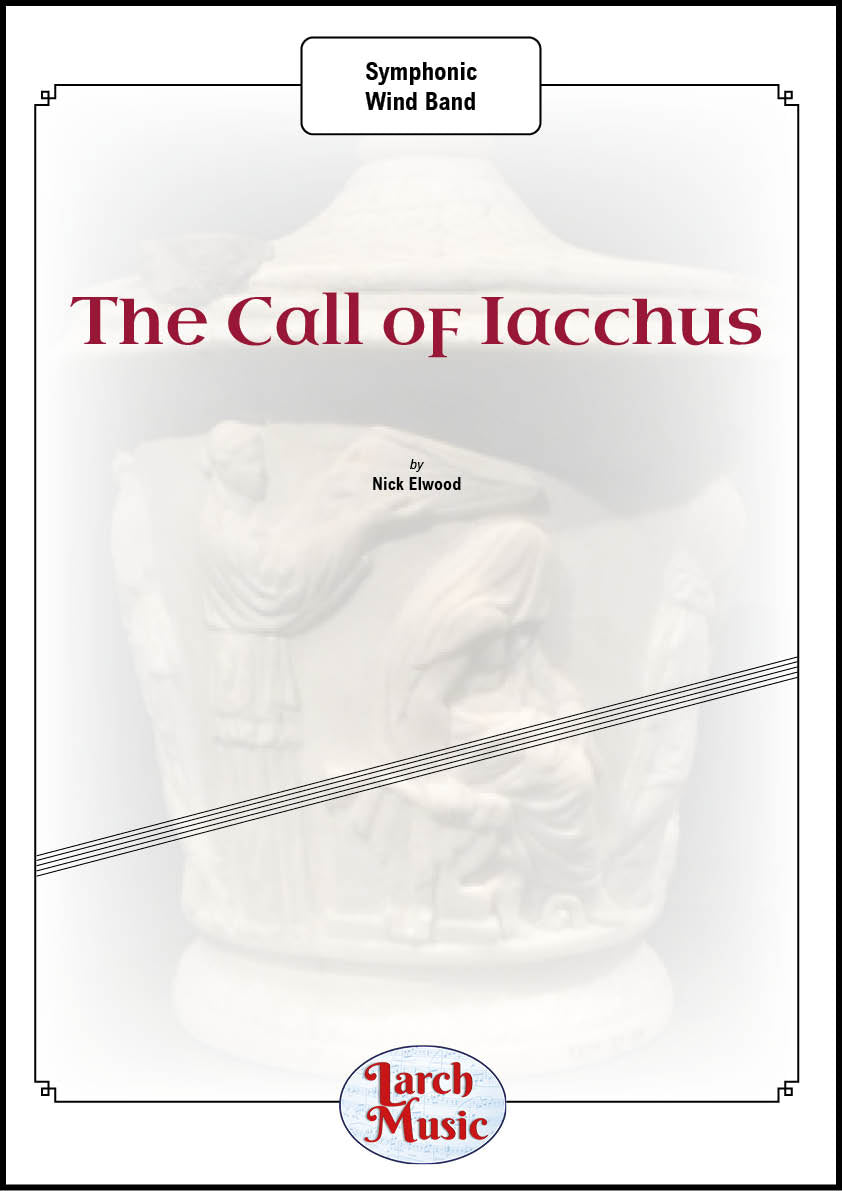Larch Music Ltd.
The Call of Iacchus - Symphonic Wind Band - LM913
The Call of Iacchus - Symphonic Wind Band - LM913
Couldn't load pickup availability
COMPOSER : Nick Elwood
Duration 10.40 minutes
'Receive the god into your kingdom, pour libations,
cover your head with ivy join the dance!'
Euripides, The Bacchae
The Call of Iacchus
Iaachus (Bacchus), also known as Dionysus, was the Greek god of wine, the grape harvest, winemaking, fruit, vegetation and fertility. Iaachus was also the Greek god of theatre but his origins are eastern. His 'fruity' character had a dark side: he was also the god of insanity and religious and ritual ecstasy. Though mentioned by Herodotus and Pausanias, our most graphic account of Iaachus’ character comes from Euripides’ tragedy, The Bacchae. Written around 410 BC, it earned first prize in the Athenian equivalent of the Golden Globe Awards known as The City Dionysia. This was an annual event with three categories: tragedy, comedy and satire. Euripedes, having died shortly after writing The Bacchae, posthumously won first prize in 405 BC. Today, it is considered one of Euripides’ greatest works and one of the greatest tragedies of all time.
Followers of Iaachus, known as The Maenads (‘raving ones’) were women whom Iacchus inspired into a state of ecstatic frenzy through dancing and intoxication. Their rituals took place in the secrecy of the mountains. In the Bacchae, King Pentheus of Thebes, and his mother Agave, are gruesomely punished by Iaachus for failing to worship him. In a state of frenzy, thinking Pentheus a mountain lion, he is ripped apart by Agave and other Maenads and consumed. Triumphant, the Maenads return to the city, Agave carrying the head of a lion. It is only when she comes down from her high that she realises the bloody head is that of her son.
Iaachus is both a divine and a mortal stranger, both foreigner and Greek. He is at once intensely masculine, and yet effeminate, delicate and given to decorative clothing and flowing curly hair. He allows women to question the supremacy of men, but then punishes them by sending them mad; he is worshipped in the wild countryside, but is central to an important and organized cult in the heart of the city; he is the god of “letting go but his powers can drive humans to insanity, lack of judgement and loss of humanity. He blurs the division between comedy and tragedy. At the end of The Bacchae, Iaachus remains something of a mystery, a complex and difficult character whose nature is elusive.
The Bacchae is rich in binary opposition:: scepticism versus piety, reason versus irrationality, Greek versus foreign, male versus female/androgynous, civilization versus savagery/nature. Euripides attempts to answer the question of whether there can be a space for the irrational within a well-structured and ordered space, either interior or exterior. The tragedy depicts a struggle to the death between the forces of control (restraint) and freedom (release). Iaachus’ implicit message is that a space must be allowed within society for the irrational. The acceptance of irrationality allows society to exist and thrive and without it, society will tear itself apart. It demonstrates the necessity of self-control, moderation and wisdom in avoiding the two extremes: both the tyranny of excessive order and the dangerous frenzy of collective passion. The threat of such binary oppositions is as important today as they were in ancient Athens.
Share


